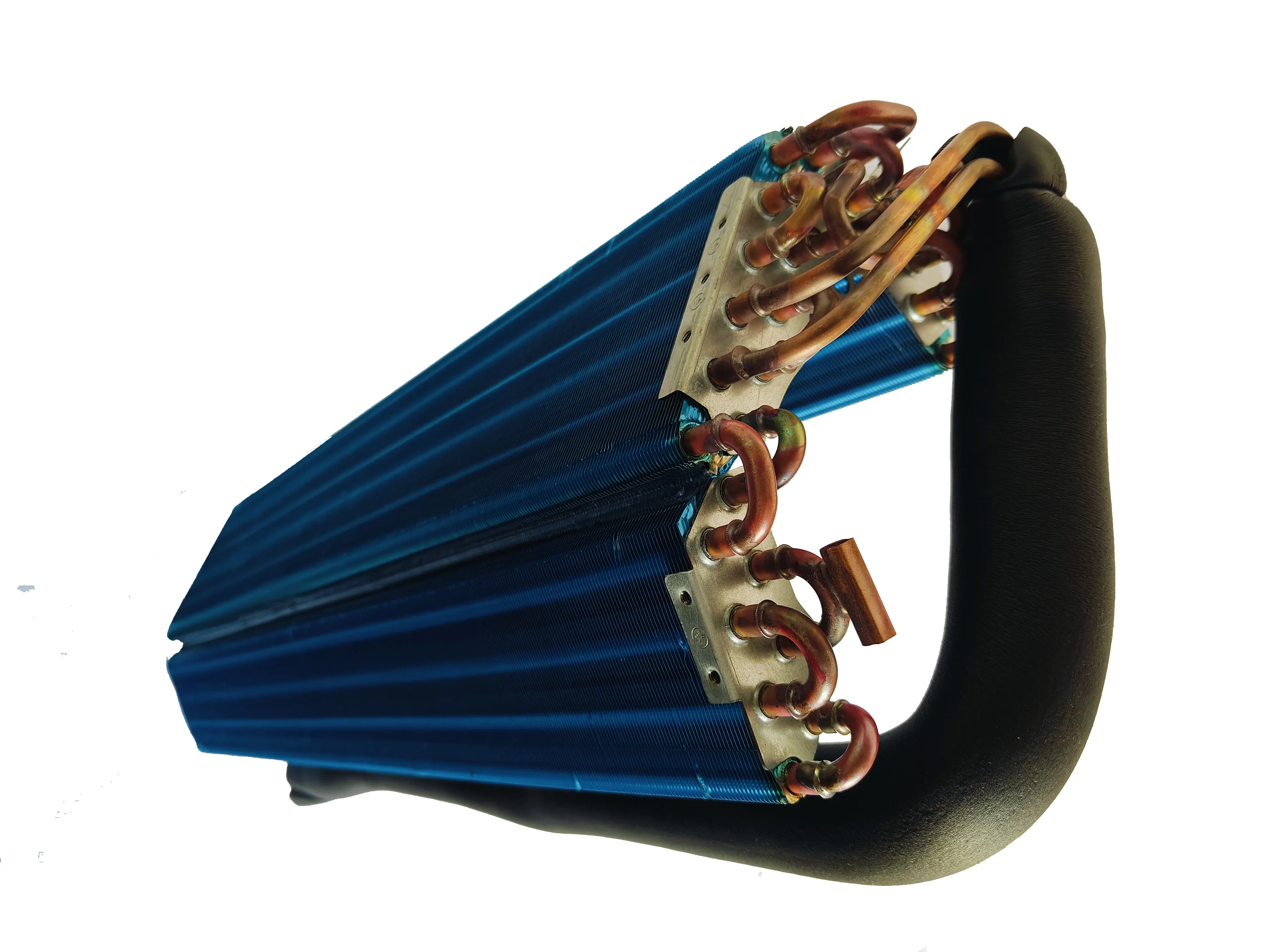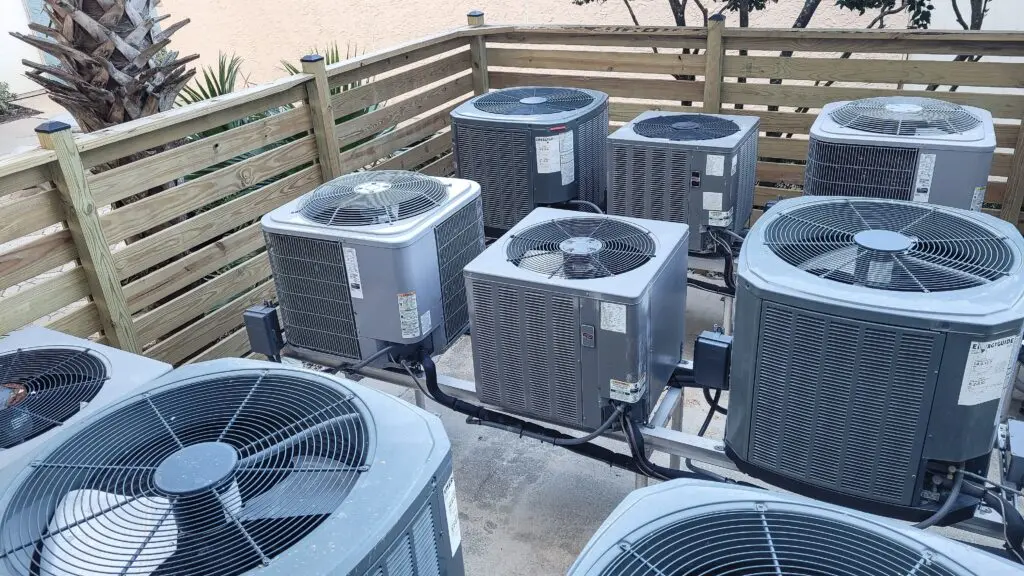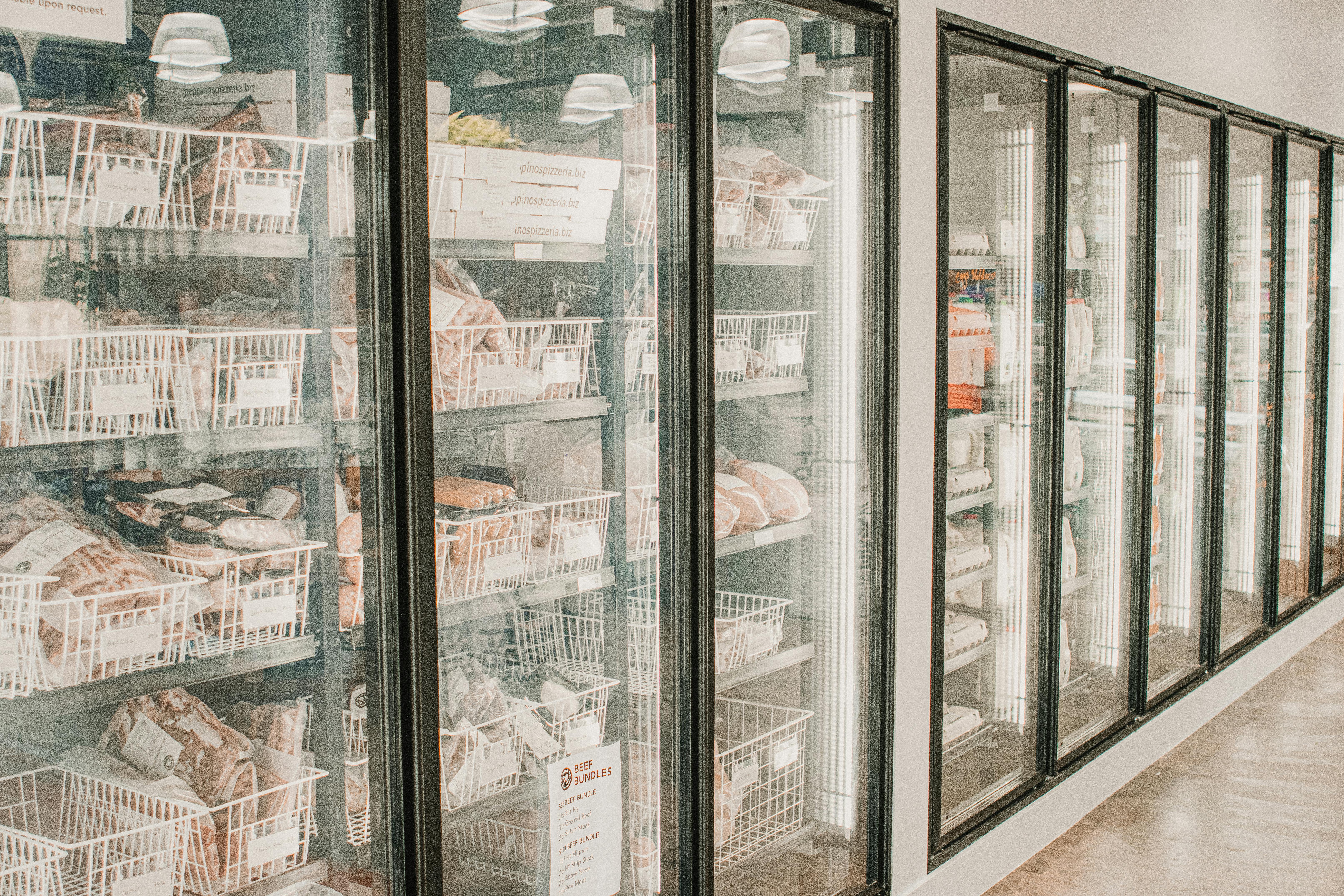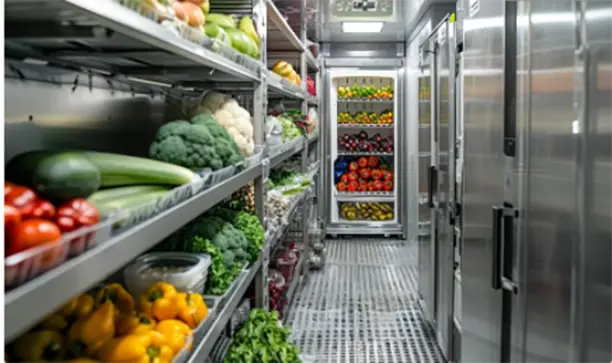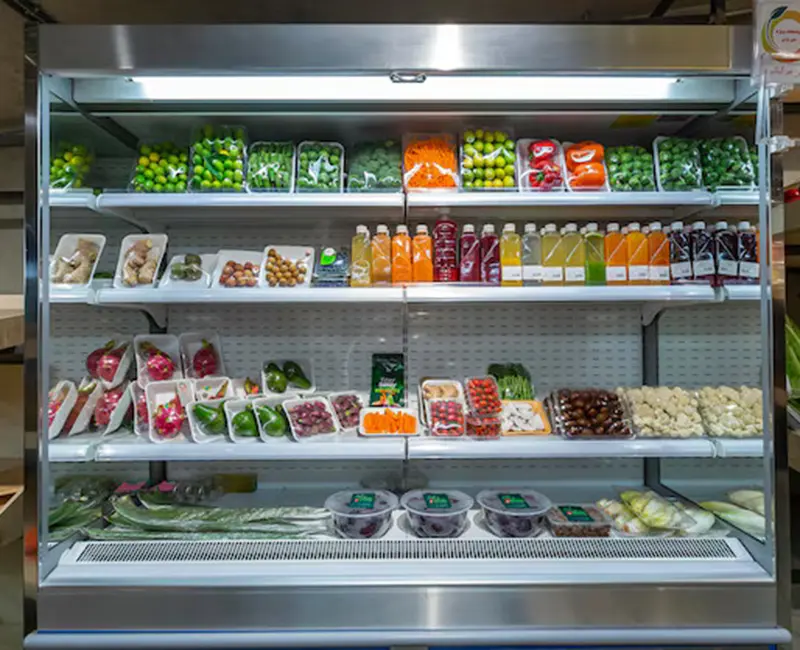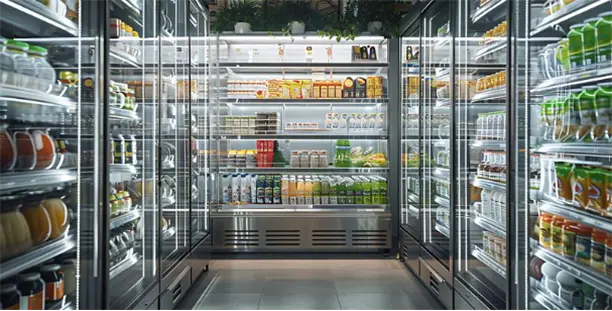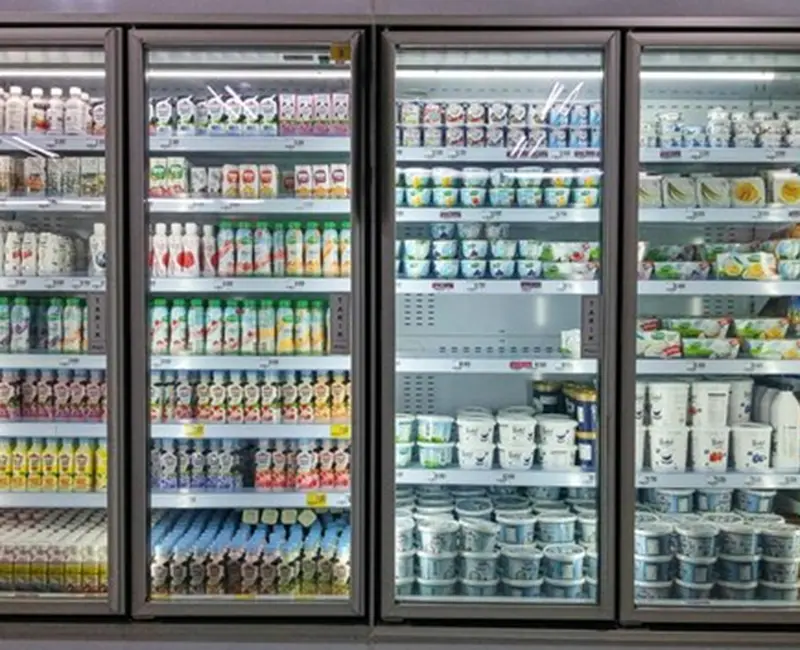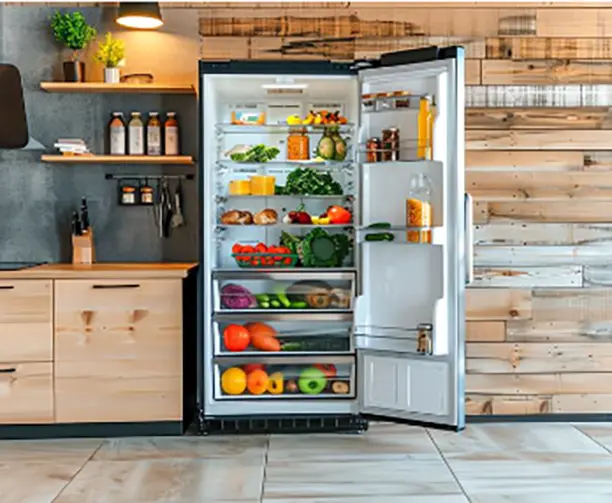Wire tube condenser material options and suppliers?
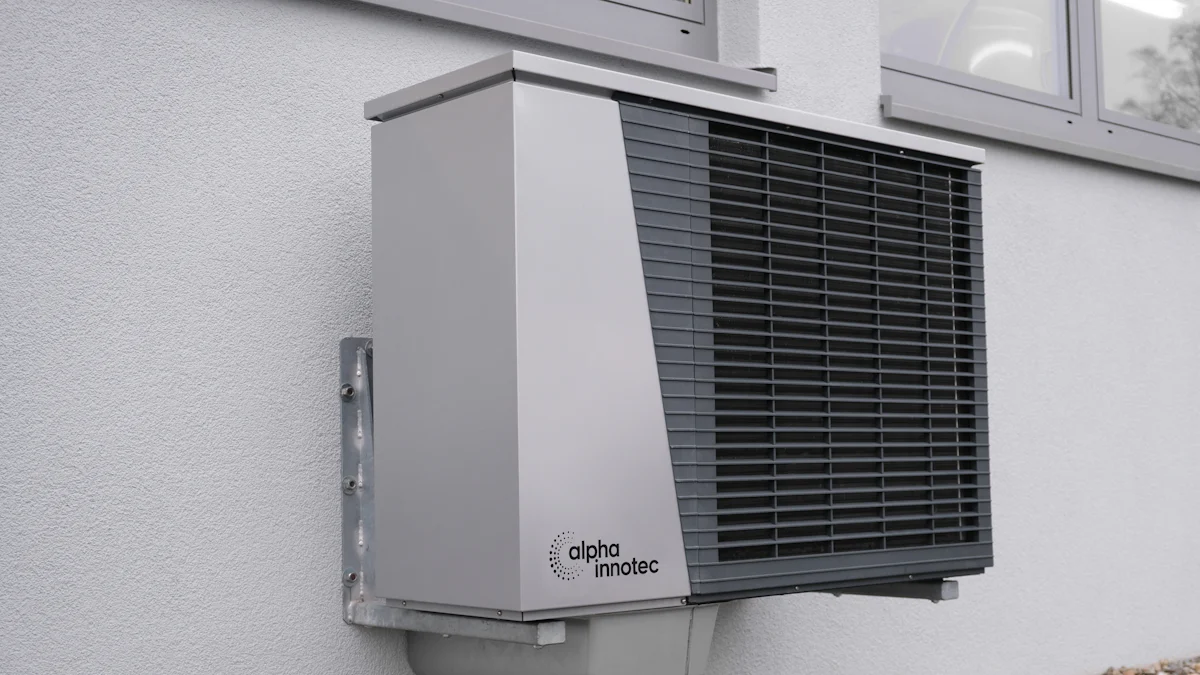
Wire tube condensers rely on materials like copper, aluminum, stainless steel, and carbon steel to deliver optimal performance. Each material offers unique properties that influence durability, thermal efficiency, and cost. For example, Bundy tubes, made of steel coated with copper, excel in thermal conductivity. Steel wires enhance structural stability and heat dissipation, while aluminum provides a lightweight, corrosion-resistant option.
Choosing the right material is critical. It impacts heat transfer efficiency, lifespan, and maintenance costs. High-strength steel ensures durability and reduces long-term expenses. Reliable suppliers like senjun play a vital role in maintaining quality. Ningbo Senjun New Materials Co., Ltd. specializes in wire tube condensers and copper aluminum fin heat exchangers for applications like refrigerators, freezers, and medical equipment.
Key Takeaways
- Wire tube condensers are made from copper, aluminum, stainless steel, or carbon steel. These materials change how they work, last, and cost.
- Copper transfers heat well but costs more. Aluminum is cheap and light but not very strong.
- Stainless steel lasts long and resists rust, good for tough jobs. Carbon steel is cheaper if coated properly.
- Picking the right supplier is important. Check for ISO 9001 certification to ensure good quality.
- Custom wire tube condensers fit special needs, making them work better in different uses.
Common Materials for Wire Tube Condensers
Copper
Key properties
Copper stands out for its excellent thermal conductivity, making it a top choice for wire tube condensers. Its durability and resistance to corrosion ensure long-lasting performance, even in challenging environments. Copper also offers flexibility, which simplifies design and installation processes. Additionally, its energy efficiency contributes to reduced operational costs.
| Advantages | Disadvantages |
|---|---|
| Excellent heat transfer properties | N/A |
| Durability and resistance to corrosion | N/A |
| Flexibility in design and installation | N/A |
| Energy efficiency | N/A |
Common applications and limitations
Copper is widely used in refrigeration systems, including refrigerators and freezers. Its ability to handle high-pressure refrigerants makes it ideal for demanding applications. However, its higher cost compared to other materials may limit its use in budget-sensitive projects.
Aluminum
Key properties
Aluminum is a lightweight and cost-effective material for wire tube condensers. Its high thermal conductivity enhances cooling performance, while its natural oxide layer provides corrosion resistance. Aluminum is also eco-friendly, as it is highly recyclable, reducing environmental impact.
| Benefit | Description |
|---|---|
| Excellent Heat Transfer | Aluminum has high thermal conductivity, enhancing cooling performance and system efficiency. |
| Lightweight Construction | Being lighter than copper, aluminum reduces installation and handling costs. |
| Corrosion Resistance | Forms a protective oxide layer, ensuring longevity and structural integrity. |
| Cost-Effectiveness | Generally cheaper than copper, making it a viable option for large systems. |
| Eco-Friendly and Recyclable | Aluminum is highly recyclable, reducing environmental impact and energy consumption in production. |
Common applications and limitations
Aluminum is commonly used in applications like display cabinets and dehumidifiers. Its lightweight nature makes it easier to handle during installation. However, it has reduced mechanical strength compared to copper or stainless steel, which can make it more prone to damage. It is also sensitive to acidic environments and certain refrigerants, which may limit its compatibility in some systems.
| Limitation | Description |
|---|---|
| Reduced Mechanical Strength | Aluminum is less robust than materials like copper or stainless steel, making it more prone to damage during handling and operation. |
| Risk of Galvanic Corrosion | Direct contact with dissimilar metals can lead to accelerated corrosion of aluminum, affecting its functionality and integrity. |
| Vulnerability to Formicary Corrosion | Exposure to certain organic acids can cause tiny cavities in aluminum, reducing efficiency and potentially leading to refrigerant leaks. |
| Limited Compatibility with Refrigerants | Some high-pressure and high-temperature refrigerants may damage aluminum, necessitating the use of alternative materials. |
| Sensitivity to Acidic Environments | Aluminum can corrode quickly in acidic conditions, compromising its structural integrity and efficiency. |
Stainless Steel
Key properties
Stainless steel is known for its exceptional durability and corrosion resistance. These properties make it a reliable choice for wire tube condensers used in refrigeration systems. Its high strength ensures long-term performance, even under stress or in corrosive environments.
Common applications and limitations
Stainless steel is often used in medical ultra-low temperature refrigerators and ice makers. Its resistance to wear and corrosion makes it suitable for applications requiring high durability. While it may have a higher upfront cost, its longevity often offsets this expense over time.
Ningbo Senjun New Materials Co., Ltd. offers wire tube condensers made from these materials, ensuring high-quality solutions for various industries. Their expertise in developing copper aluminum fin heat exchangers and other products makes them a trusted supplier for refrigeration and cooling systems.
Carbon Steel
Key properties
Carbon steel offers a unique combination of strength and affordability, making it a popular choice for wire tube condensers. I often recommend it for applications where durability and cost-effectiveness are priorities. Its high tensile strength ensures structural stability, even under heavy loads. This material also provides excellent machinability, which simplifies manufacturing processes. While it lacks the natural corrosion resistance of stainless steel, protective coatings can enhance its longevity.
| Property | Description |
|---|---|
| High Strength | Carbon steel withstands heavy loads and mechanical stress effectively. |
| Cost-Effective | It is more affordable than copper or stainless steel, ideal for budget projects. |
| Machinability | Easy to shape and process, reducing production time and costs. |
| Versatility | Suitable for various industrial and commercial applications. |
Common applications and limitations
Carbon steel is widely used in refrigeration systems, including refrigerators and freezers. Its strength makes it suitable for large-scale systems like display cabinets and dehumidifiers. I’ve noticed that industries often choose carbon steel when they need a balance between performance and cost. However, it requires protective coatings to prevent rust in humid or corrosive environments. Without these coatings, its lifespan may decrease.
Ningbo Senjun New Materials Co., Ltd. excels in producing wire tube condensers using carbon steel. Their expertise ensures high-quality products for industries like refrigeration, medical equipment, and more. Senjun’s commitment to innovation and quality makes them a trusted supplier for businesses worldwide.
Tip: When selecting carbon steel for a wire tube condenser, always consider the operating environment. Protective coatings can significantly extend its lifespan in challenging conditions.
Comparing Material Properties
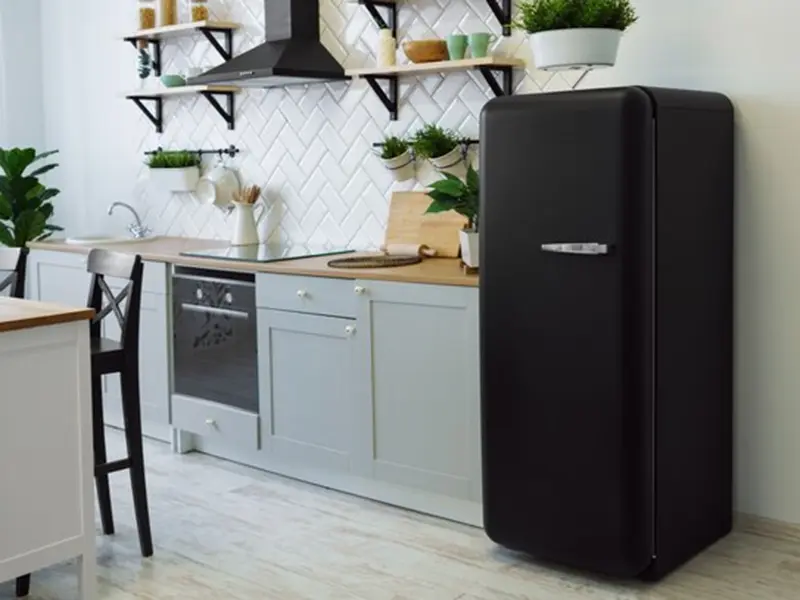
Durability
How each material performs under stress and wear
When I evaluate materials for durability, I focus on their ability to withstand stress and wear over time. Copper offers excellent durability due to its resistance to corrosion and mechanical stress. Aluminum, while lightweight, performs well in less demanding environments but may not handle heavy loads as effectively. Stainless steel stands out for its exceptional strength and resistance to wear, making it ideal for high-stress applications. Carbon steel provides robust performance, especially when coated to prevent rust. Bundy tubes, with their copper-coated steel construction, combine strength and thermal efficiency, making them a versatile choice.
Best options for long-term use
For long-term use, I recommend materials based on their durability and application needs. Here's a quick comparison:
| Material | Properties |
|---|---|
| Copper | Excellent thermal conductivity and durability |
| Aluminum | Good thermal conductivity and lightweight |
| Steel | High strength and corrosion resistance |
| Bundy Tubes | Steel tubes coated with copper for heat transfer |
| High-strength Steel | Exceptional durability and reduced maintenance |
Thermal Conductivity
Importance of thermal performance in condensers
Thermal performance plays a critical role in the efficiency of a wire tube condenser. These condensers transfer heat from the refrigerant to the surrounding air, ensuring optimal cooling. Materials like copper and aluminum excel in this area due to their high thermal conductivity. The coiled structure of the condenser maximizes surface area, further enhancing heat transfer efficiency. This makes material selection crucial for energy-efficient cooling systems.
Material rankings for heat transfer efficiency
Based on thermal conductivity, copper leads the pack, followed by aluminum. Stainless steel and carbon steel lag behind but remain viable for specific applications. Here's a breakdown:
| Metal | Thermal Conductivity (W/m·K) |
|---|---|
| Copper | 389 - 401 |
| Aluminum | 167 - 237 |
| Stainless Steel | 8.1 |
| Carbon Steel | N/A |
Corrosion Resistance
Why corrosion resistance matters
Corrosion resistance ensures the longevity and reliability of a condenser, especially in harsh environments. I’ve seen how corrosive conditions can degrade materials, leading to leaks and reduced efficiency. Choosing the right material minimizes maintenance and extends the lifespan of the system.
Materials best suited for corrosive environments
Copper and stainless steel excel in resisting corrosion, making them ideal for challenging conditions. Aluminum-brass and copper-nickel alloys offer enhanced resistance in seawater or brackish environments. High-strength steel, when treated, also performs well. Here's a comparison:
| Material | Corrosion Resistance Characteristics |
|---|---|
| Copper | Commonly used in heat exchangers; good corrosion resistance. |
| Copper-Nickel Alloys | Excellent performance in seawater and brackish conditions; protective film enhances resistance. |
| Aluminum-Brass | Enhanced corrosion resistance; suitable for hot de-aerated seawater and brines. |
| High-Strength Steel | Used in various applications; corrosion resistance varies based on treatment and environment. |
Ningbo Senjun New Materials Co., Ltd. ensures that their wire tube condensers meet high standards for durability, thermal performance, and corrosion resistance. Their expertise in producing copper aluminum fin heat exchangers and other products makes them a trusted partner for refrigeration and cooling systems.
Cost-Effectiveness
Balancing upfront costs with long-term value
When I evaluate materials for wire tube condensers, cost-effectiveness becomes a key factor. It’s not just about the initial price tag. I always consider how the material performs over time. For example, copper may have a higher upfront cost, but its durability and energy efficiency often lead to lower maintenance and operational expenses. This makes it a smart investment for long-term use.
Aluminum, on the other hand, offers a more affordable starting price. Its lightweight nature reduces transportation and installation costs. However, it may require additional care in certain environments to maintain its performance. Stainless steel, while more expensive initially, provides unmatched durability and corrosion resistance. This reduces the need for frequent replacements, saving money in the long run.
Carbon steel stands out as a budget-friendly option. Its affordability makes it ideal for large-scale projects. With proper coatings, it can deliver reliable performance without breaking the bank. I’ve found that balancing these factors—upfront costs, maintenance, and lifespan—helps achieve the best value for any application.
Budget-friendly options for different applications
For cost-sensitive projects, I recommend materials like aluminum and carbon steel. Aluminum works well in applications like display cabinets and dehumidifiers, where lightweight construction is a priority. Its recyclability also adds value for eco-conscious projects. Carbon steel is perfect for refrigeration systems that require strength and affordability. Protective coatings can enhance its lifespan, making it a practical choice for budget-friendly solutions.
Copper and stainless steel, while pricier, excel in demanding environments. Medical ultra-low temperature refrigerators and ice makers benefit from their durability and efficiency. These materials may cost more initially, but their long-term performance justifies the investment.
Ningbo Senjun New Materials Co., Ltd. offers a range of wire tube condensers tailored to different needs. Their expertise ensures high-quality products, whether you prioritize cost, durability, or thermal performance. Senjun’s solutions cater to industries like refrigeration, medical equipment, and more, making them a trusted partner for businesses worldwide.
Tip: Always match the material to the application’s requirements. This ensures you get the best value without compromising performance.
How to Choose the Right Supplier
Quality Certifications
Importance of certifications (e.g., ISO, ASME)
Certifications play a vital role in ensuring the quality and reliability of wire tube condensers. Reliable suppliers adhere to strict industry standards and possess certifications like ISO 9001 or ASME. These certifications validate their manufacturing processes and confirm that their products meet the demands of various applications. I always recommend prioritizing suppliers with these credentials to ensure consistent quality and performance.
How to verify supplier credentials
Verifying a supplier's credentials is straightforward. Start by requesting copies of their certifications and checking their validity with the issuing organizations. Look for details like expiration dates and scope of certification. I also suggest reviewing their compliance with industry standards during site visits or audits. This approach ensures you partner with a supplier who meets your quality expectations.
Delivery Timelines
Why timely delivery matters
Timely delivery is crucial for maintaining smooth operations. Delays can disrupt production schedules and lead to financial losses. I’ve seen how reliable suppliers help businesses avoid these issues by ensuring on-time delivery, even for rush orders. This reliability builds trust and strengthens long-term partnerships.
Tips for ensuring reliable supply chains
To ensure a dependable supply chain, I recommend the following strategies:
- Communicate frequently and openly with suppliers.
- Collaborate on process improvements and quality enhancements.
- Honor commitments, such as timely payments.
- Provide constructive feedback during performance reviews.
- Schedule regular meetings to discuss progress and future plans.
Additionally, evaluate suppliers based on their capabilities, financial stability, and certifications. Using a supplier evaluation scorecard with criteria like cost, reliability, and service quality can help align their strengths with your business goals.
Customer Reviews and Reputation
How to research supplier reviews
Customer reviews offer valuable insights into a supplier's reputation. I always look for feedback on product quality, delivery timelines, and after-sales support. Positive reviews often indicate consistent performance and strong customer satisfaction. For example, senjun has earned praise for its innovation and reliability, making it a trusted name in the industry.
Red flags to watch out for
When evaluating suppliers, watch for these red flags:
- Lack of quality certifications or poor-quality materials.
- Frequent delays in delivery or inability to handle rush orders.
- Unresponsive customer service or inadequate technical support.
By avoiding these pitfalls, you can select a supplier who meets your expectations and supports your business goals.
Note: Ningbo Senjun New Materials Co., Ltd. specializes in wire tube condensers and copper aluminum fin heat exchangers. Their commitment to quality and innovation makes them a reliable partner for industries like refrigeration, medical equipment, and more.
Customization and Support
Importance of tailored solutions
I’ve found that customization plays a vital role when selecting a supplier for wire tube condensers. Tailored solutions ensure the product meets specific cooling requirements, which is essential for achieving optimal performance. Custom designs also enhance efficiency and extend the lifespan of specialized systems. For example, a condenser designed for a medical refrigerator may require different materials or dimensions compared to one used in a food storage unit. This flexibility allows businesses to address unique challenges effectively.
- Customization ensures compatibility with diverse cooling systems.
- It improves efficiency and reduces operational costs.
- Tailored designs enhance the durability of the system.
Evaluating supplier responsiveness and technical support
Supplier responsiveness significantly impacts the selection process. I always prioritize suppliers who maintain open communication and adjust production schedules during unexpected demand surges. Quick responses to inquiries and efficient complaint resolution reflect a supplier’s commitment to customer satisfaction.
Technical support is equally important. Skilled technicians can assist with installation and troubleshooting, ensuring the wire tube condenser operates at peak performance. This level of support minimizes downtime and helps businesses maintain smooth operations.
- Responsive suppliers adapt to changing needs and ensure timely deliveries.
- Strong technical support guarantees optimal system performance.
- Efficient issue resolution fosters long-term partnerships.
Spotlight on senjun
Overview of senjun's offerings
Senjun stands out as a leader in the production of durable and efficient wire tube condensers. Their focus on innovation and quality materials ensures high-performance products. They also specialize in customization, tailoring condensers to meet specific size, material, and application requirements. This adaptability makes their products compatible with a wide range of cooling systems.
- Wire tube condensers designed for durability and efficiency.
- Customization options include size, material, and application needs.
- Products cater to industries requiring reliable cooling solutions.
Industries served by senjun
Senjun serves a variety of industries with their advanced cooling solutions. Their products are widely used in refrigeration, HVAC, and industrial cooling systems. They also cater to specialized sectors like medical refrigeration and food storage.
- Refrigerators and freezers.
- Medical ultra-low temperature refrigerators.
- Ice makers and dehumidifiers.
- Food and beverage factories.
Senjun’s commitment to quality and innovation makes them a trusted partner for businesses worldwide.
Selecting the right material for a wire tube condenser depends on durability, thermal performance, and cost. Here’s a quick comparison:
| Material | Durability | Thermal Performance | Cost |
|---|---|---|---|
| Copper | Moderate | Excellent | High |
| Aluminum | Good | Good | Moderate |
| High-strength Steel | Excellent | Good | Low |
| Bundy Tubes | Excellent | Excellent | Moderate |
Balancing material properties with supplier reliability ensures long-term efficiency and performance.
- Materials like copper or aluminum influence durability and efficiency.
- Reliable suppliers provide high-quality products and robust after-sales support.
Ningbo Senjun New Materials Co., Ltd. excels in producing wire tube condensers and copper aluminum fin heat exchangers. Their expertise ensures durable, efficient solutions for industries like refrigeration and medical equipment. I recommend considering both material properties and supplier reliability to make the best decision for your needs.
FAQ
What factors should I consider when choosing a wire tube condenser material?
I always recommend focusing on durability, thermal performance, and cost. For example, copper offers excellent heat transfer, while aluminum is lightweight and affordable. Stainless steel provides unmatched strength, and carbon steel balances cost and performance. Match the material to your application needs for the best results.
How do I ensure the supplier provides high-quality wire tube condensers?
I suggest checking for certifications like ISO 9001 or ASME. These validate the supplier’s manufacturing standards. Also, review customer feedback and request product samples. Reliable suppliers, like Ningbo Senjun New Materials Co., Ltd., prioritize quality and innovation in their products.
Can I customize wire tube condensers for specific applications?
Yes, customization is possible. Many suppliers, including senjun, offer tailored solutions. You can specify size, material, and design to meet unique cooling requirements. Customization ensures compatibility with your system and enhances efficiency.
Why is corrosion resistance important in wire tube condensers?
Corrosion resistance extends the lifespan of condensers, especially in humid or harsh environments. Materials like copper and stainless steel resist corrosion effectively. I’ve seen how protective coatings on carbon steel also improve durability in challenging conditions.
What industries benefit from senjun’s wire tube condensers?
Senjun serves diverse industries. Their products are ideal for refrigerators, freezers, medical ultra-low temperature refrigerators, ice makers, and dehumidifiers. They also cater to specialized sectors like food storage and display cabinets, ensuring reliable cooling solutions for various needs.









